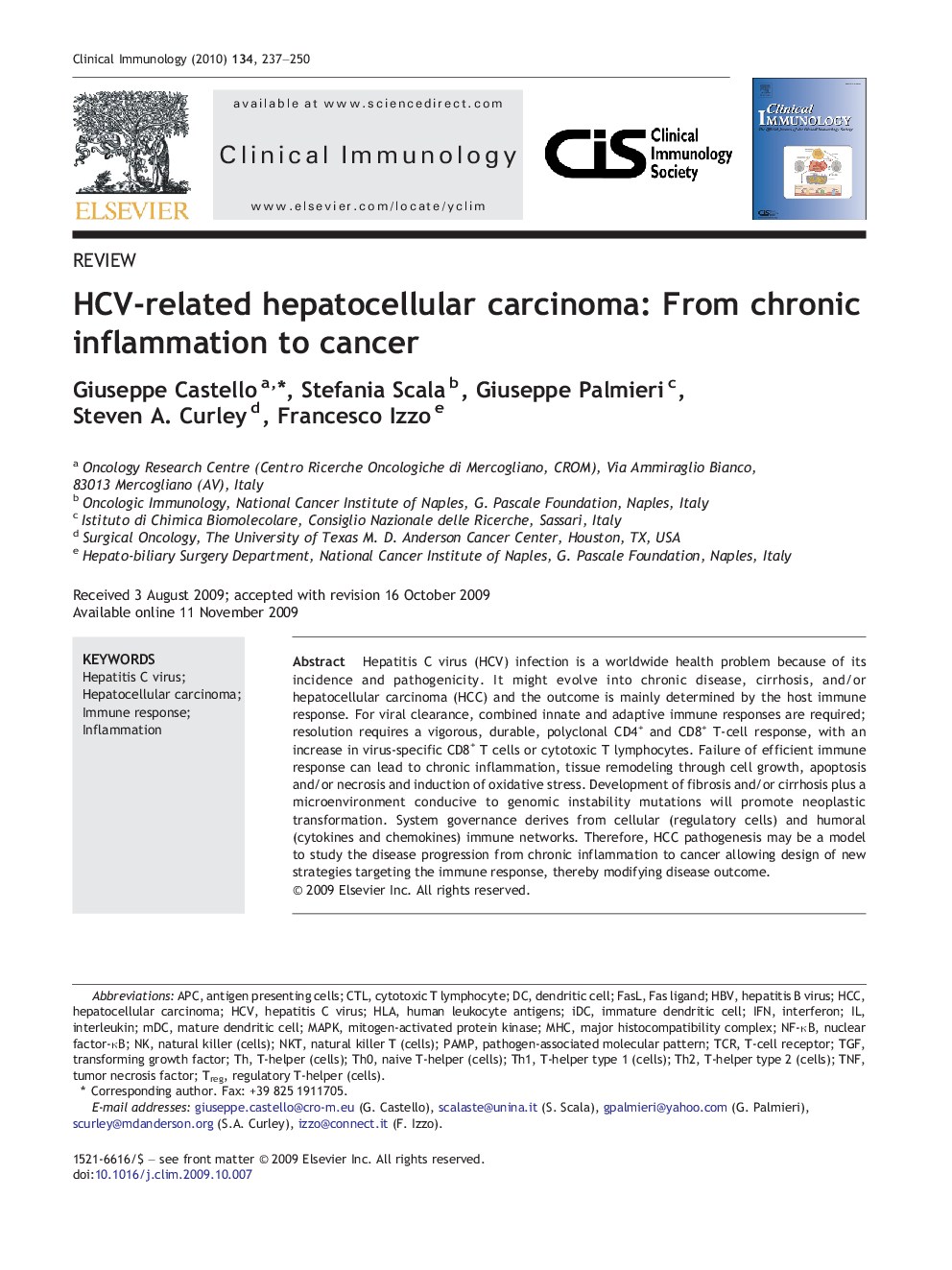| Article ID | Journal | Published Year | Pages | File Type |
|---|---|---|---|---|
| 3257302 | Clinical Immunology | 2010 | 14 Pages |
Hepatitis C virus (HCV) infection is a worldwide health problem because of its incidence and pathogenicity. It might evolve into chronic disease, cirrhosis, and/or hepatocellular carcinoma (HCC) and the outcome is mainly determined by the host immune response. For viral clearance, combined innate and adaptive immune responses are required; resolution requires a vigorous, durable, polyclonal CD4+ and CD8+ T-cell response, with an increase in virus-specific CD8+ T cells or cytotoxic T lymphocytes. Failure of efficient immune response can lead to chronic inflammation, tissue remodeling through cell growth, apoptosis and/or necrosis and induction of oxidative stress. Development of fibrosis and/or cirrhosis plus a microenvironment conducive to genomic instability mutations will promote neoplastic transformation. System governance derives from cellular (regulatory cells) and humoral (cytokines and chemokines) immune networks. Therefore, HCC pathogenesis may be a model to study the disease progression from chronic inflammation to cancer allowing design of new strategies targeting the immune response, thereby modifying disease outcome.
